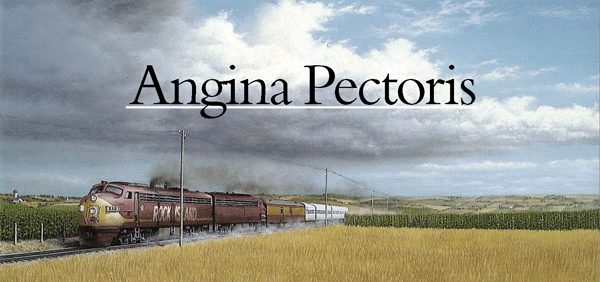Saturday, April 30, 2011
How They Miss the Point
I think biblical scholars are unique in that they have more time to waste than the rest of us.
Tuesday, April 12, 2011
Are We Still Evangelical?
This is partly in response to PD's comments on my most recent post, but it is also something I have been mulling over for a while.
A classic, concise definition for "evangelical" as it exists in the English speaking world (meaning, it does not necessarily entail Lutheran Evangelicals) and its antecedents has been put forward by historian David Bebbington. According to him, there are four markers of an evangelical:
- Conversionism: Meaning that, as opposed to the Catholic view, evangelicals emphasize conversion as the real sign of membership in the Kingdom of God.
- Biblicism: Or known classically as Sola Scriptura. This is fairly self-explanatory, but as pointed out earlier, variously understood among evangelicals.
- Activism: Whether its slavery in late eighteenth century Britain, women's rights in late nineteenth century Britain and America, abortion in the 1970s and 80s, or Southern Baptists boycotting Disney in the 1990s, evangelicals have always been very active in society. In my opinion, this trait is one of the most interesting historically.
- Crucicentrism: This ties in heavily to point number one, but this does tend to occupy a considerable amount of evangelical theology. This is in contrast to, say, the Eastern Orthodox Christians who might emphasize the incarnation as the main soteriological event.
What do you think? Are we still evangelical?
Saturday, April 9, 2011
An Evangelical Crisis, Again.
If Rob Bell's latest book has told us anything about the state of evangelicalism in North America today, it is that it is a very polarized entity. The Gospel Coalition's virulent rejection of Bell as heterodox, Richard Cizik's dismissal as the president of the National Association of Evangelicals over his stance on homosexuality, and countless blog posts from disenchanted young evangelicals all suggest that evangelicalism is headed for yet another split. This is, of course, nothing new. Since British-American evangelicalism began in the eighteenth century, it has distinguished itself by its tendency to split, form a new group, and then split again.
By looking at the present divide between what he calls "Meliorists" and "Traditionists", Gerald McDermott helpfully sizes up the present tension, warning of the inevitable outcome if the situation persists:
By looking at the present divide between what he calls "Meliorists" and "Traditionists", Gerald McDermott helpfully sizes up the present tension, warning of the inevitable outcome if the situation persists:
If history is a guide, the present divisions between Meliorists and Traditionists will widen. In another twenty years, Meliorists may not be recognizable as evangelicals, and, like the liberal Protestants they resemble, will likely have trouble filling their pews.[…] If the evangelical movement does not learn from that experience, it will risk disintegrating into ever more subjectivist and individualistic sects, many of them neither evangelical nor orthodox. (From "Evangelicals Divided", First Things, April 2011.)I think McDermott is right. The question that continues to persist is why this is the case. What is it about evangelicalism that dooms it to this cycle? He may be onto something when he points out that, "sola scriptura is a necessary but not sufficient principle for maintaining theological orthodoxy." The problem with the present situation, and similar past situations, is that both sides appeal to the text, but do it with subtly different assumptions. As in the case of Schleiermacher, the vocabulary remains the same but the meanings shift in seismic ways.
Subscribe to:
Posts (Atom)

